Gate automation is revolutionizing security and convenience for homes and businesses in Goa. This guide from The Handy Goan covers everything you need to know about gate automation, including benefits, types, and considerations for choosing the right system.
Swing Gates: Operate like traditional doors, swinging inward or outward. Ideal for properties with ample driveway space.
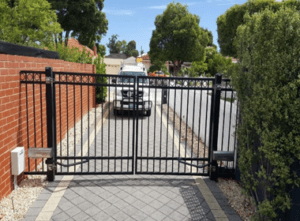
Sliding Gates: Move horizontally on a track. Suitable for properties with limited space.
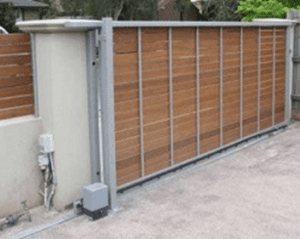

Bi-Folding Gates: Fold into sections, requiring less space to operate.
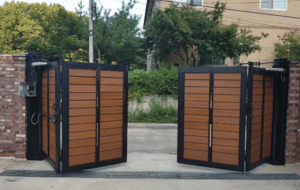

Vertical Lift Gates: Lift vertically, perfect for areas with constrained horizontal space.


Telescopic Gates: Similar to sliding gates, but it collapses into itself when opened this occupies less space.
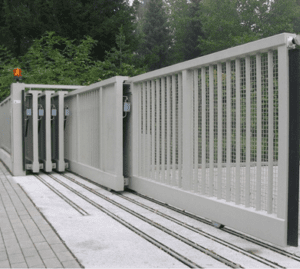

Underground motors: A type of swing gate motor which is hidden underground.
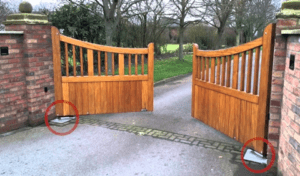

Convenience: Remote control or smartphone operation makes entering and exiting effortless.
Security: Enhanced security features like keypads and intercoms deter unauthorized access.
Accessibility: Automated gates improve accessibility for all users.
Aesthetics: Customizable designs enhance property appeal.
Increased Property Value: Automated gates can boost your property’s market value.
learn more benefits of an automatic gate system
Residential: Securing homes and enhancing curb appeal.
Commercial: Controlling access to business premises.
Industrial: Protecting industrial sites and regulating vehicle access.
Hospitality: Providing a seamless and secure experience for guests.
Also, check our blog on pdlc smart glass
Gate Type: Choose between swing, sliding, bi-folding, or vertical lift based on space and preference.
Size and Weight: Ensure the motor can handle the gate’s dimensions and weight.
Frequency of Use: Consider heavy-duty systems for high-frequency use.
Budget: Balance initial costs with long-term benefits.
AC vs. DC Motors: DC motors are quieter and more efficient, while AC motors are powerful and reliable.
Hydraulic Systems: Ideal for heavy gates and high-traffic areas.
Access Control: Keypads, card readers, and biometric systems.
Intercom Systems: Audio and video intercoms for visitor communication.
Safety Sensors: Prevent accidents by stopping the gate if an obstruction is detected.
Site Assessment: Evaluate the site for suitability.
Foundation Work: Prepare the ground and install necessary supports.
Gate and Motor Installation: Install the gate and motor system.
Electrical Setup: Ensure safe and reliable power connections.
Testing and Configuration: Test the system for smooth operation and configure settings.
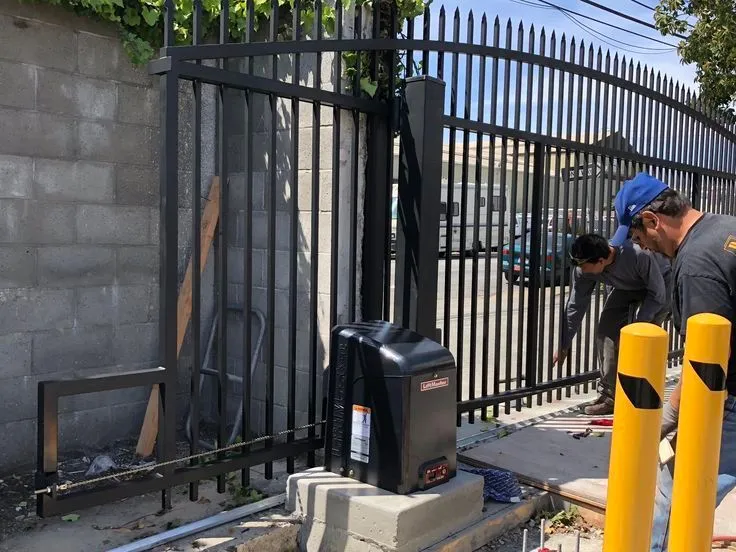

DIY Installation: Suitable for those with technical skills and experience. Cost-effective but risky.
Professional Installation: Ensures safety, reliability, and compliance with local regulations.
Regular Inspections: Check for wear and tear.
Cleaning: Keep tracks and mechanisms clean.
Lubrication: Ensure smooth operation by lubricating moving parts.
Safety Checks: Regularly test safety features like sensors and emergency stops.
Comply with local and international safety standards.
Regularly update safety protocols to match evolving regulations.
Equipment Costs: Vary based on gate type and features.
Installation Costs: Professional installation adds to the budget but ensures reliability.
Maintenance Costs: Regular upkeep to extend system lifespan.
Weather Conditions: Choose weather-resistant materials and components.
Power Requirements: Ensure stable power supply, consider solar options for sustainability.
Connect your gate automation with smart home systems for enhanced control and monitoring.
Gate automation involves using motorized systems to open and close gates automatically. It enhances security, convenience, and accessibility for residential, commercial, and industrial properties.
There are several types, including swing gates, sliding gates, bi-folding gates, and vertical lift gates. Each type has specific advantages depending on the available space and usage requirements.
Automatic gates offer convenience, enhanced security, improved property aesthetics, increased property value, and better accessibility. They can be controlled remotely and integrated with security systems.
Consider factors like gate type, size, weight, frequency of use, budget, and specific security features. Consulting with a professional can help in making the right choice.
The process includes site assessment, foundation work, gate and motor installation, electrical setup, and system testing. Professional installation ensures compliance with safety standards and optimal performance.
Gate automation provides numerous benefits in terms of security, convenience, and property value. By understanding the different types of gates, choosing the right system, and maintaining it properly, you can ensure long-term satisfaction and safety. For the best gate automation solutions in Goa, trust The Handy Goan.
check our guide on Home security alarm system in Goa